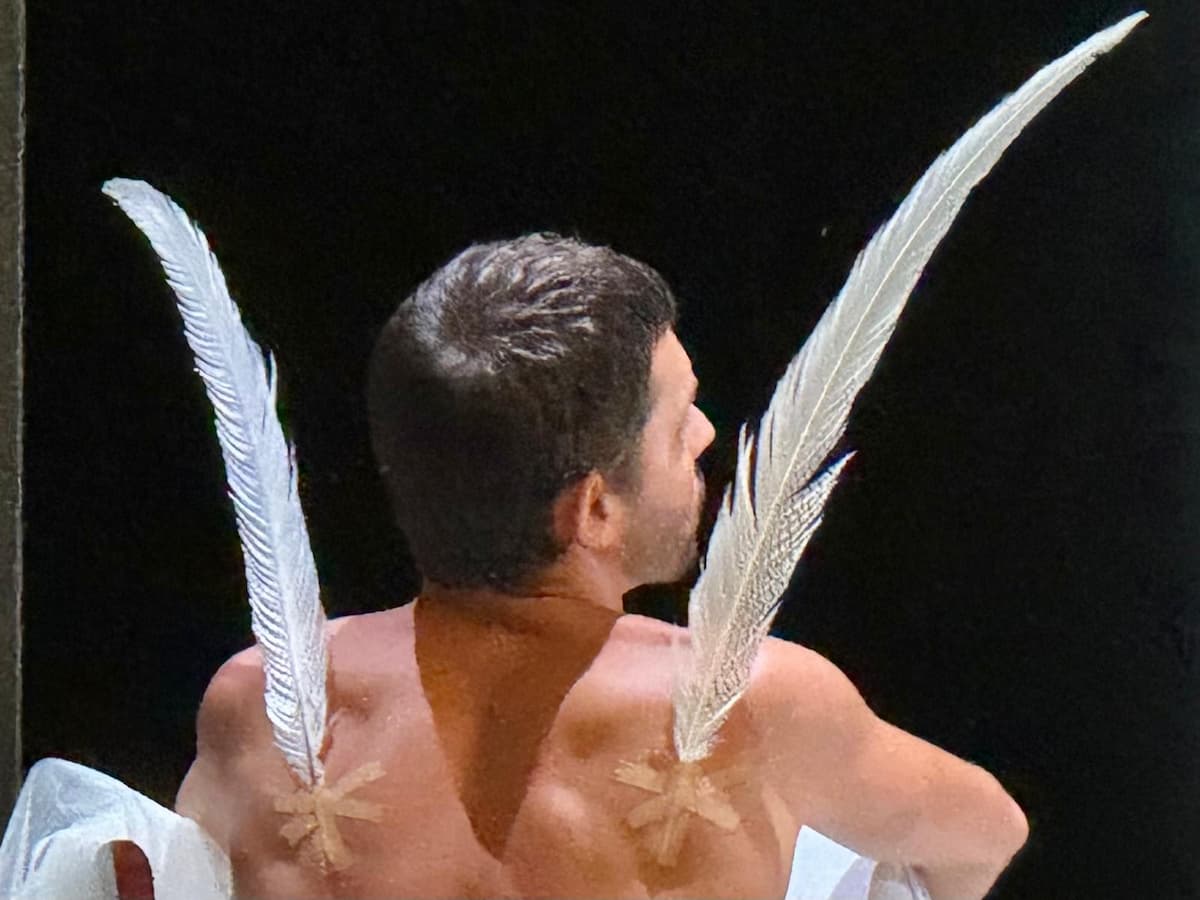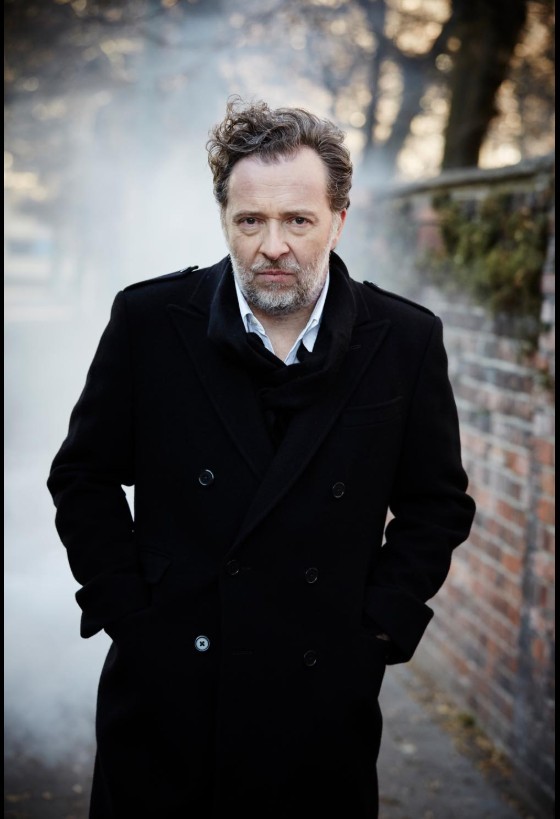There’s a good reason why Gioachino Rossini’s Bianca e Falliero is rarely performed. It is long, dramatically weak, and the music can be repetitive – some of the most interesting parts are actually borrowed from the composer’s La Donna del Lago. To boot, it is very difficult to cast. Experts would largely agree that this opera, composed in 1819 for Milan’s Teatro alla Scala, is not the finest work of the Swan of Pesaro. And yet, in a questionable move, the Rossini Opera Festival (ROF) chose Bianca e Falliero to open its 2024 Festival, the year that Pesaro is nominated as Italian Capital of Culture.

© Leslie Macleod-Miller
Australian-British Jessica Pratt, who has been appearing at ROF since 2011, delivered a very fine Bianca. Her agile voice, extraordinary flexibility and assured heights – including an awe-inspiring high E natural – makes her one of the few sopranos able to handle this demanding role.
She was matched with Aya Wakizono as Falliero, who delivered surgically clean lines and impressive coloraturas, though the strain of the role began to show towards the third hour. A heavier and darker voice might have been better suited for the role of the Venetian hero, but her duets with Pratt beautifully showcased Rossini’s filigreed writing.
Festival regular Dmitry Korchak has matured handsomely from the youthful hero of yesteryear to the sonorous father figure Contareno. His voice remains agile and attractive but now he has added heft. Giorgi Manoshvili deployed his rich bass to deliver a memorable Capellio, the more reasonable of the two feuding family heads.
Roberto Abbado kept the full-forced Orchestra Sinfonica della RAI running along energetically. The Coro del Teatro Ventidio Basso, another ROF regular, was motivated and precise as ever.
Jean-Louis Grinda’s direction and scenery didn’t add a lot to the evening. The performers’ movements were largely static and mannered, there was no consistent thread between time and place, and there was little to clarify the confusing plot. Visually, we moved from 1920s wartime movies to 17th century Venetian council scenes, with costumes of rather questionable taste and unidentifiable periods.

© Leslie Macleod-Miller
The newly re-opened Auditorium Scavolini remains problematic. The acoustics are mediocre, and the sense of school sports stadium is undeniable. Of even greater concern is the infrastructure. One single-stall toilet for each gender simply does not suffice for a theatre accommodating well over a thousand audience members, many of older generations. And the sole bar was hopelessly under-resourced, adding to the irritation.
The opera buffa chosen for this year was L’Equivoco Stravagante, written by Rossini when he was barely 19 years old. It only saw three performances before it was closed down by the authorities. It’s talk of desertion was just as scandalous as the rumour that an unwilling bride-to-be may in fact be a man – she isn’t. From today’s perspective, these topics are only mildly amusing, and Moshe Leiser and Patrice Caurier turned the piece into pure slapstick, to the point of forcing all performers to wear Donald Duck-like snouts. The masks were probably meant to underline the characters’ simple-mindedness, but ultimately they were little more than a silly distraction and certainly an uncomfortable obstacle for the singers. Nicola Alaimo in the leading role of Gamberotto kept an otherwise spotty cast together, his sonorous bass and impeccable diction giving the audience a taste of what Rossini expected from a buffo.
There was no silliness in the pit, with Michele Spotti handling the Filarmonica Gioachino Rossini with great panache and precision. While Rossini might have been young, he was already able to write some hellishly difficult music.
The third night featured a new production of Ermione, one of Rossini’s greatest failures when it opened at the Teatro San Carlo of Naples in 1819. The composer had intimated that the work was ahead of its time. This production demonstrated unmistakably that Ermione’s time had now fully come.

© Leslie Macleod-Miller
In his Pesaro debut, German-born director Johannes Erath took the convoluted plot based on Racine’s Andromeda and distilled it into themes about the struggle between love, vanity, vengeance and power. The stylized boxes and staircases on the stage contrasted well with the videos and especially with the costumes which ranged from goth to punk. Unlike most directors, Erath is not scared of bringing the singers to the front of the stage and out onto the ramps surrounding the deep orchestra pit. He effectively used the enormous stage to illustrate the lack of intimacy between many of the characters. Erath also delivered a production that could appeal to many generations, including to a younger audience which is so critically important for this festival’s future.
The singers embraced this production with relish. Anastasia Bartoli (in a deliciously operatic footnote, she is the daughter of Cecilia Gasdia, one of the early ROF Ermiones) devoured the title role of Ermione. Her luscious and voluminous voice soared, plumbed, whispered, shattered, never losing its crystalline quality. An engaging actress of nearly threatening physicality, she effortlessly commandeered the massive arena, manipulating the characters and bewitching the audience.
She was well matched with an ardent Pirro sung by festival regular Enea Scala whose tenor is now solidly veering into baritonal spheres, which is exactly the type of voice that Rossini wrote the part for.

© Leslie Macleod-Miller
Juan Diego Flórez sang the small role of Oreste with precision and beauty. While he is an operatic superstar of the highest order as well as Artistic Director of the ROF, in Ermione he is just another collegial ensemble member performing his relatively minor part with enormous distinction.
Even the smaller roles were brilliantly cast. Victoria Yaroyava offered a powerful and harried Andromaca. Michael Mofidian deserves special mention for his incisive bass and agile stage presence.
Michele Mariotti was in his element with the Orchestra Sinfonica della RAI sounding full, detailed and enthusiastic. Mariotti is a hugely talented conductor, with an innate understanding of Rossini and an ability to inspire singers as well as audience members.
When a performance is this good, one sort of wishes it were even longer.
Performances attended: 7,8,9 August 2024
For more of the best in classical music, sign up for our E-Newsletter


